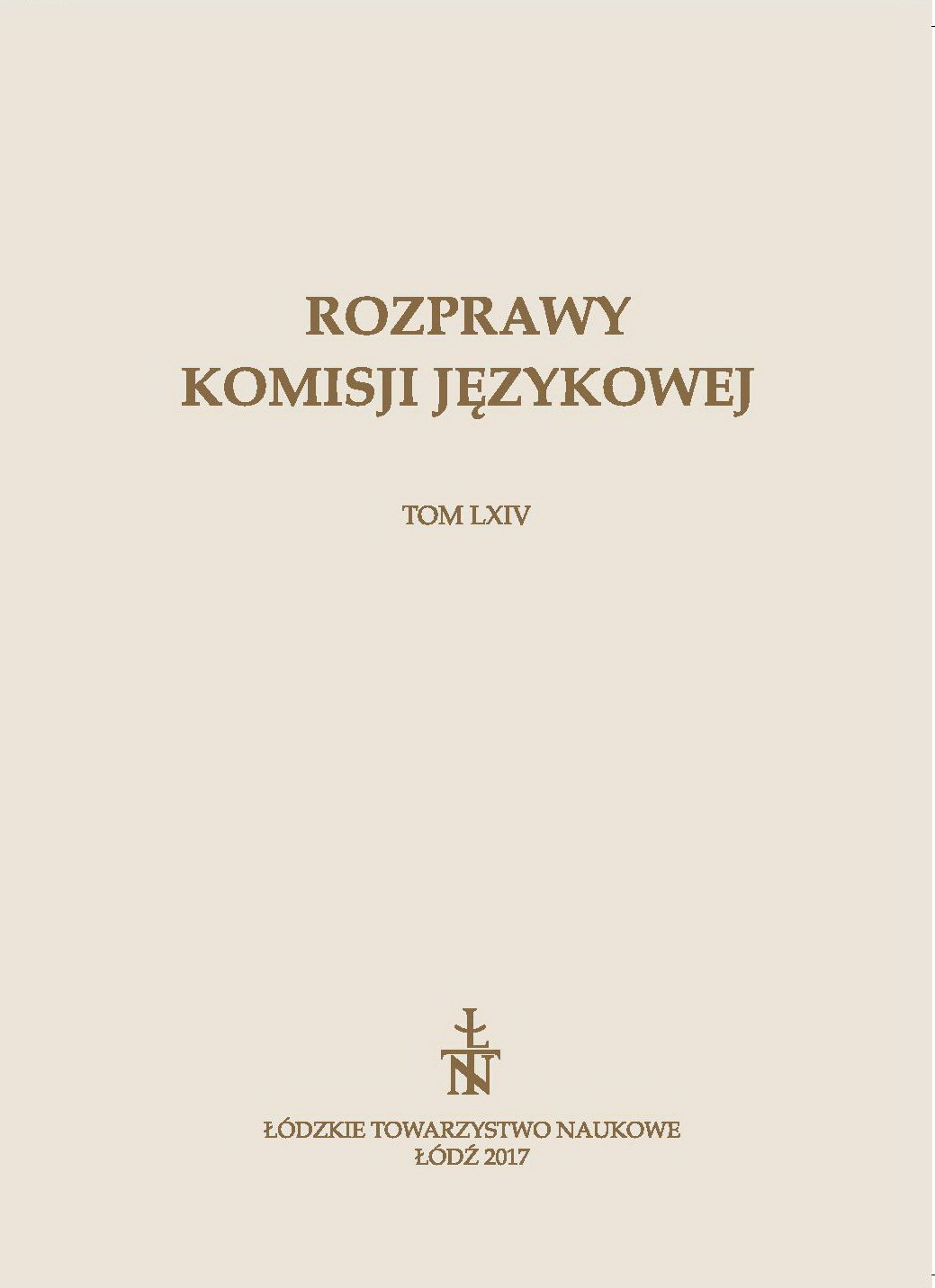Various forms of derivational tautology in Polish dialects
http://doi.org/10.26485/RKJ/2017/64/7
Abstract
The author examined the issue of a derivational tautology of nouns and adjectives on examples from the dialects of Central Poland. Various causes of this phenomenon of a grammatical (derivational and flectional) character were indicated. Some of them were connected with shaping of semantic function of individual formants (e.g. those forming names of places and activity instruments), other with their productivity (e.g. adjective suffix -ny) and also with their influence on more distinct categorial function of derivatives (cf. bornik, gonciarka, kopydło). Some changes were observed in recognizing originally tautological derivatives that are connected with the modification of meaning of words formed with their help (e.g. gąsiątko – gąsię).






